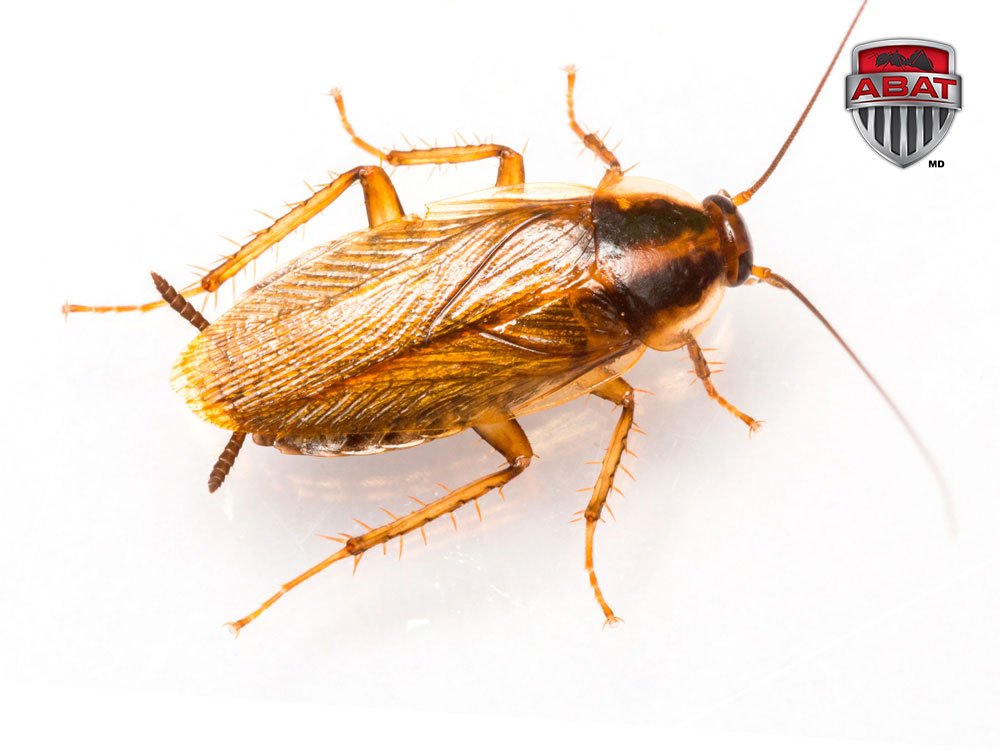| French name | Blatte germanique |
| English name | German cockroach |
| Latin Name | Blattella germanica |
| Class | Insecta |
| Order | Blattodea |
| Family | Ectobiidae |

Despite its misleading name, the German cockroach (Blattella germanica) is not from Germany but from Asia. It is an extremely prevalent and invasive species in hot and humid latitudes such as Honduras. The Island of Útila is no exception to the omnipresence of this cockroach.
Also known as cucarachas or roaches, cockroaches are omnivorous and feed on all kinds of trash. To reach their food, they crawl everywhere and try to remain hidden:
- Deep inside kitchen cupboards
- Under sinks
- In pipework
- In motors of household appliances
- Etc.
You mat notice that other cockroaches are proliferating in Útila:
Warm and humid areas: the ideal spot for these insects
The female cockroach will reproduce very quickly in favourable weather conditions. A female produces 4 to 8 ootheca (a rigid egg pod or capsule) in its life span, and each ootheca holds about 50 eggs. This means it can lay 400 eggs, with an incubation period of 2 to 3 weeks.
The adult cockroach measures approximately 10 to 16 mm in length.
Its colour varies from light to dark brown and there are two dark bands on its pronotum (thorax). Both the male and female have wings, but the nymphs are wingless.
Harmful to humans
Beware, as these insects can contaminate food and transmit disease because of the germs and bacteria they carry under their legs. These can cause allergic reactions on skin, intestinal pain or respiratory problems. Aside from these pathogenic issues, German cockroaches also give off a bad odour, especially when crushed.
Following many requests made by home owners, shopkeepers and restaurants, our company has developed an integrated pest management solution, along with its expertise in pest control management, in order to eradicate these insects.
Cockroaches in hotel restaurants and holiday accommodations
The German cockroach moves mostly on the ground but it can also fly over very short distances, falling to the ground or on a moving vehicle in order to cover more distance. This insect lives in the tropics but is now also present in cities because of frequent exportation, world trade and the development of tourism.
Cockroaches are found in homes in residential areas but also in food shops, restaurants and hotels. Indeed, individuals who own holiday homes in Honduras, as well as hotel professionals (including hospidajes) call on the services of our disinfestation specialists. We act quickly, even in your absence if you prefer and, most importantly, discretely.
Call +504 8807-9517 in Utila
All species of cockroaches have this point in common: they are attracted by heat and humidity, and do not survive well in cold temperatures. The day-long intense heat along with humidity levels nearing 90% such as occurs in the islands create the ideal conditions for them to grow and multiply.
Cockroaches and tourist areas
The Island of Útila is magnificent with white sand beaches and ocean temperatures that are always just right for swimming.
These locations charm and attract many vacationers, underwater divers, mangrove explorers and wilderness enthusiasts. However, the undesirable presence of cockroaches in rented villas, cars, hotels, even in restaurants, is quite troublesome.
The causes of this presence are not always linked to a lack of hygiene or to poor waste management. In fact, cockroaches are very resistant to insecticides and often prove to be difficult to eradicate.
All the countries in Central America (including Honduras) are affected by this scourge, and s tourist islands like Útila is no exception.
Signs that cockroaches are present
- Empty and abandoned ootheca (egg pods) on the ground
- A bad odour
- Sullied food packages
- Droppings in cupboards and pantries
The surest sign: seeing a cockroach in the daytime. Usually, cockroaches come out of hiding only at night, in order to remain as invisible as possible. Seeing one in daytime means the area is heavily infested.
To avoid bringing cockroaches in your luggage back to your country, city and home, contact our pest management experts. They will inspect your luggage to verify that an insect (including mosquitoes, fleas and bed bugs) did not crawl into your effects.
They will then wrap your suitcase, allowing you to travel with peace of mind.
If your luggage is not inspected, you could end up with a bad surprise upon returning home from your vacation and finding these unwelcome bugs in your things.
What to do when facing a proliferation of German cockroaches
If you vacation in a hot, humid country like Honduras or its nearby islands, you risk finding cockroaches in your kitchen or bathroom, especially at night or after a prolonged absence.
Exterminators’ advice:
- Store your food (sugar, honey, pasta, rice, bread, etc.) in closed, air tight bags or jars, so that insects are prevented from reaching the food
- Clean each room with bleach, especially the kitchen and bathroom
- Do not leave food waste on the ground
- Wash dirty dishes regularly to avoid cluttering the sink
- Empty the trash, use an air tight trash container and keep it shut
- Lower humidity levels by installing air extractors or ventilation areas
- Eliminate leaking or seeping water: for example, replace leaky faucets
- Seal and caulk all holes, cracks, openings, crevices, gaps, pipes, etc.
- Install cockroach traps in passageways and use great caution with chemicals, as they are harmful
Pest control companies use chemicals when an infestation has become very large. These products have been approved and are applied professionally in such a manner as to avoid harming the environment and human health.


